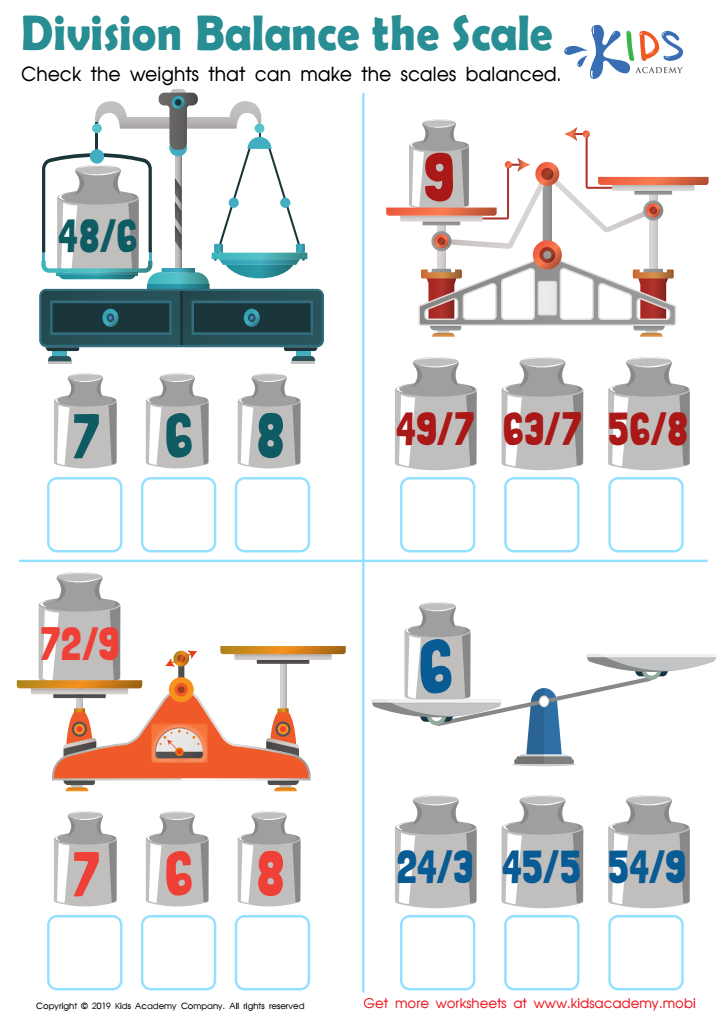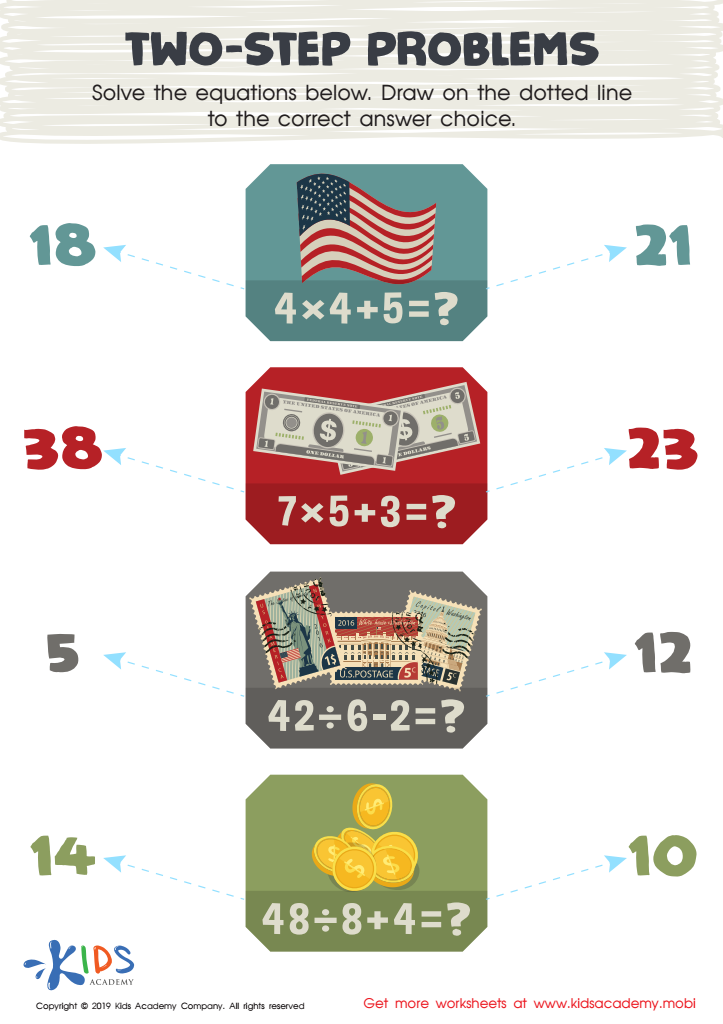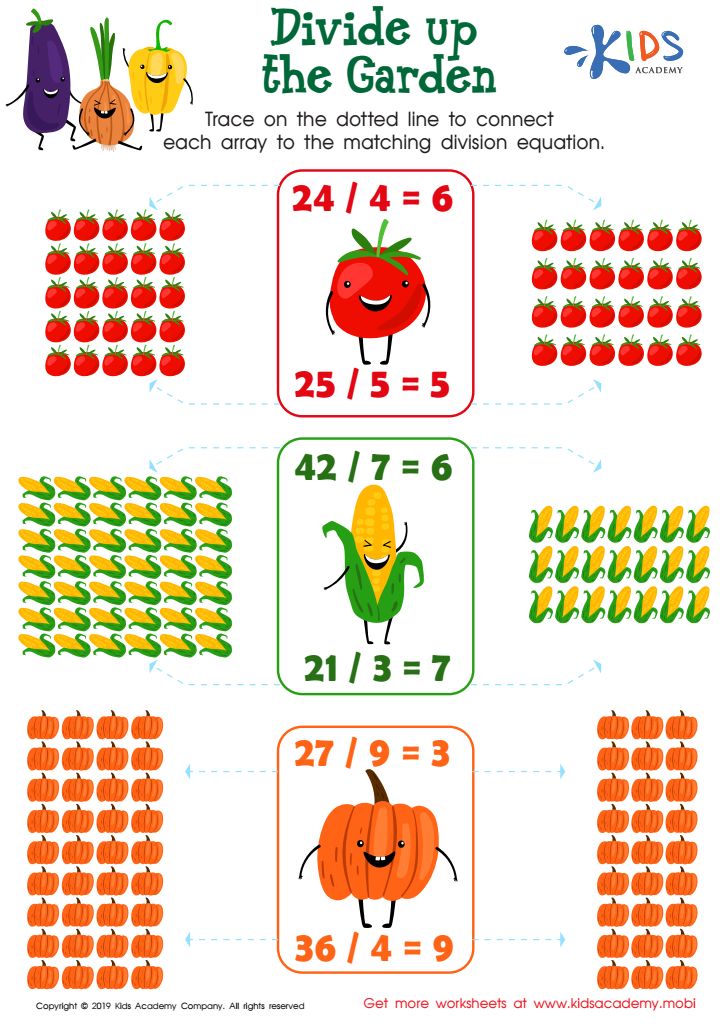Critical Thinking Normal Division Worksheets for Ages 5-8
3 filtered results
-
From - To
Welcome to our collection of Critical Thinking Normal Division Worksheets, specially designed for children ages 5-8! These engaging worksheets not only introduce the essential concept of division but also encourage young learners to develop their critical thinking skills. Each activity incorporates playful illustrations and interesting scenarios that challenge students to analyze, interpret, and solve division problems creatively. By reinforcing problem-solving strategies in a fun and interactive way, these worksheets promote a deeper understanding of mathematics. Perfect for at-home practice or classroom use, our resources aim to foster a love for learning and enhance cognitive skills in young minds. Start exploring today!


Division Balance the Scale Worksheet


Two-Step Problems Worksheet


Divide up the Garden Worksheet
Critical Thinking Normal Division for Ages 5-8 is essential because it lays a strong foundation for young learners to develop essential cognitive skills. At this stage, children are naturally curious and eager to learn, making it the perfect time to cultivate their critical thinking abilities. This process encourages them to analyze, reason, and solve problems, fostering deeper engagement with the material they encounter.
Moreover, critical thinking empowers children to make informed decisions and express themselves clearly. It promotes independence, allowing them to approach challenges with creativity and confidence. When children learn to question information, evaluate sources, and consider different perspectives, they become more adept at navigating a world filled with diverse opinions and complex issues.
Parents and teachers play a crucial role in nurturing these skills. By incorporating activities that promote discussion, exploration, and inquiry, they can create an environment that values thoughtfulness and curiosity. Furthermore, strong critical thinking skills correlate with better academic performance, enhancing children's chances for success in future education.
In summary, prioritizing critical thinking from ages 5-8 will prepare children not just for their immediate learning needs, but also for lifelong problem-solving in an increasingly complex world.
 Assign to My Students
Assign to My Students















